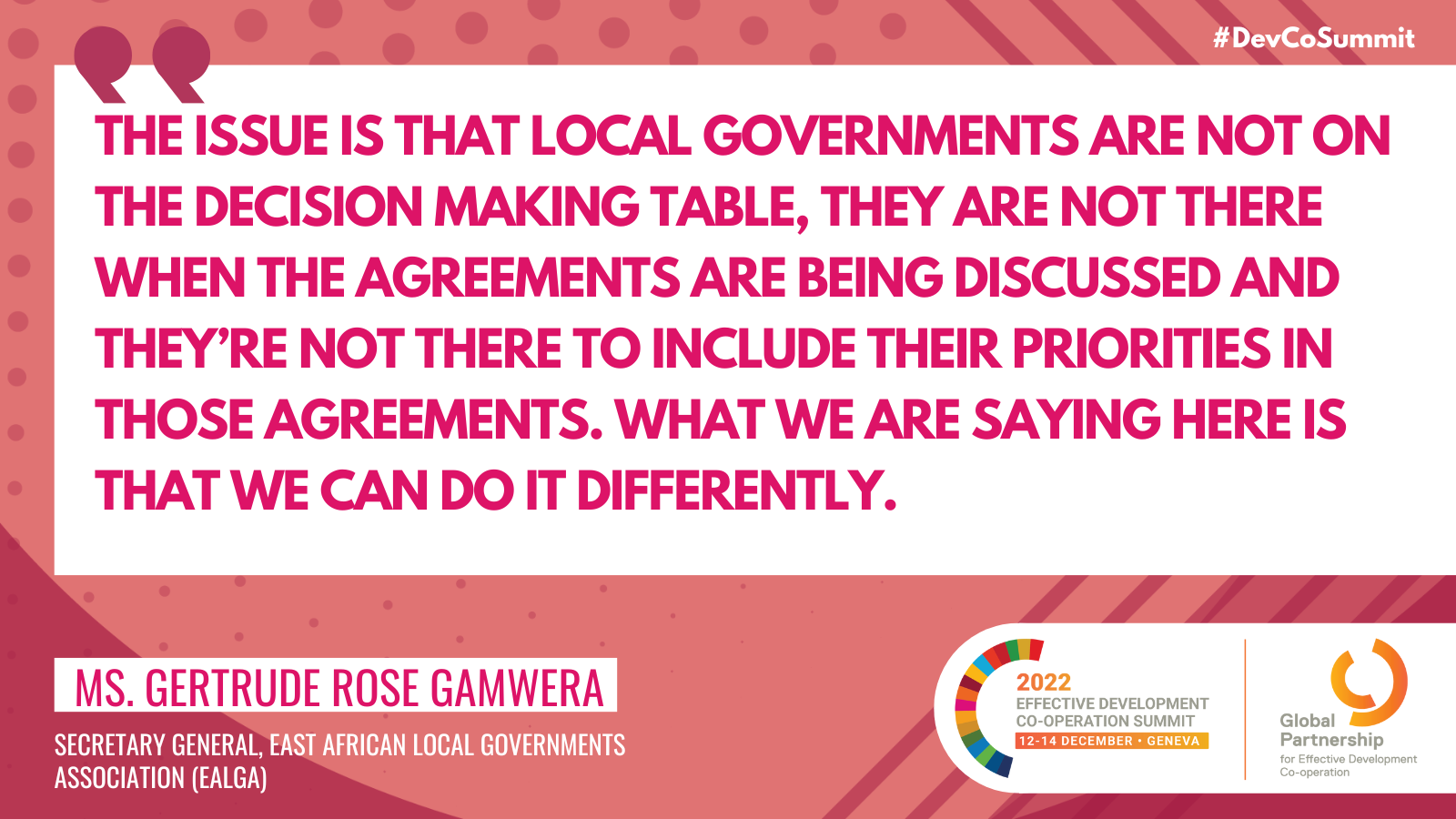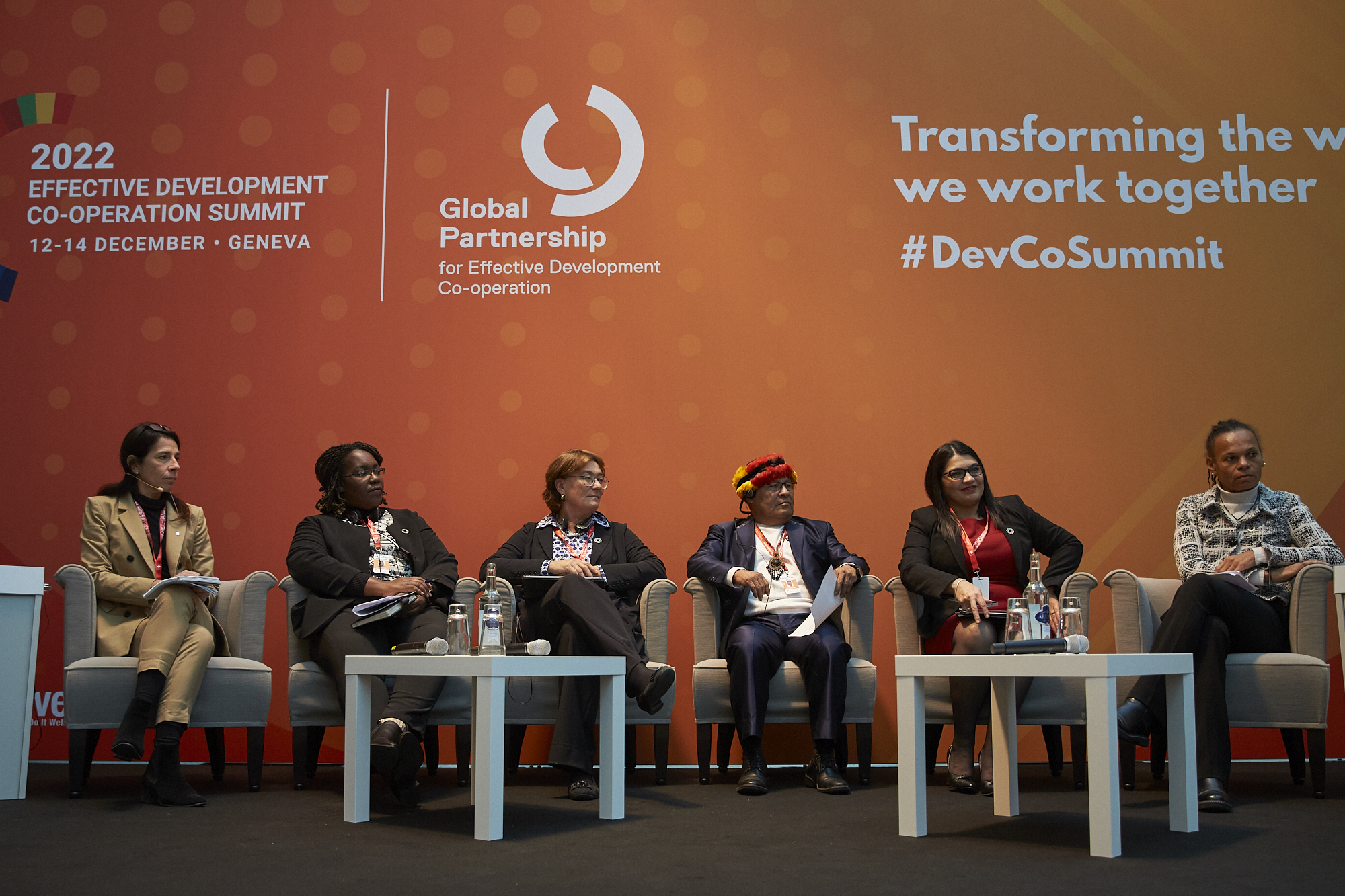Local and regional governments are at the forefront of sustainable development in a changing and resource-constrained environment. This session discussed ways to increase resources to the subnational level and how this can be done effectively.
Key Messages from the Session
- Encouraging decentralization processes: Local and regional governments need instruments, competences, and authority through official decentralization policies and legislation adopted by national governments. Studies by the OECD and by United Cities and Local Governments (UCLG) have shown that decentralization, particularly fiscal decentralization, leads to more effective and targeted service delivery for the benefit of citizens in the long term. However, in many countries, decentralization has only been partially implemented and in some cases, we attend to recentralization setbacks.
- Reinforcing engineering capacities: The issue of increasing local financial engineering capacities, and how to channel resources and financing where they are most needed, remains unresolved - especially in middle and low-income countries where the financing ecosystem is not in place. Several multilateral agencies, financing institutions, development banks, and private sector organizations have set the objective to extend their financing instruments to local and regional governments. This includes new innovative offers such as pool financing, blended finance, or green and social impact funding. Most local and regional governments, however, are not technically equipped to access these opportunities nor fully appreciate when and how to use them.
- Recognizing the value of decentralized co-operation: Decentralized co-operation is an effective approach, which adds concrete value to development co-operation. It is deeply rooted in the principles of solidarity, reciprocity, mutual understanding and exchange of knowledge, and long-term collaboration amongst local and regional governments. This model of development co-operation is involving local and regional government employees and elected officials who have the unique skills of being “doers”, are able to go beyond theory, and can implement innovative solutions. It is a powerful tool for practitioners across countries to discuss common problems and arrive at concrete results. Through its territorial approach to development and its multi-stakeholder perspective, it facilitates engagement of citizens, the local civil society, and the private sector.

Links to Relevant Resources/Products

Key Terms: Decentralized, sub-national, innovative financing, capacity building
